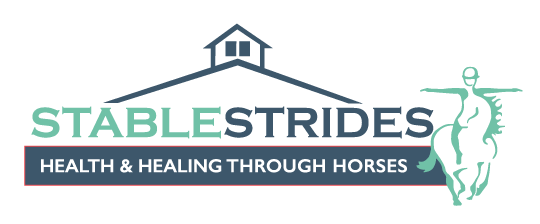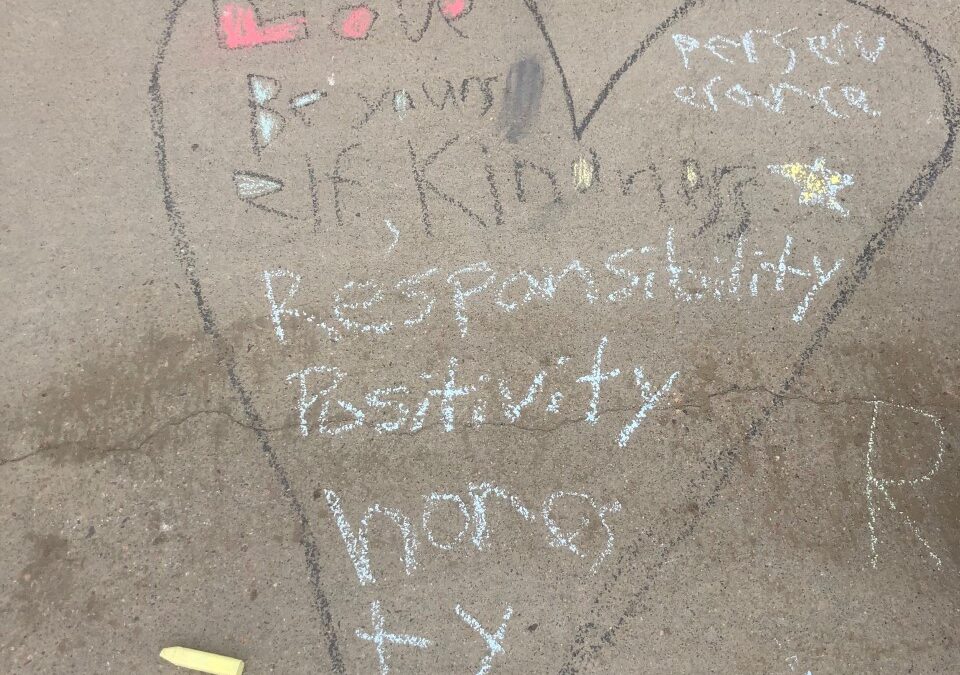By Chester DeAngelis, LCSW, Program Director
“May is Mental Health Awareness Month, and at StableStrides, we are proud to be here for our community to support wellness in so many ways. Regardless of why people seek out StableStrides, or what brings them to the barn each day, they all leave here a little lighter, a bit more at ease, and always grateful for what the horses do for their well-being. Regardless of whether they’re receiving mental health therapy, or other services, clients embrace the unique relationships, perspectives and sometimes humbling experiences the horses bring to their treatment here at StableStrides. I am lucky to be able to work with our herd of therapy horses here, and often, take the approach of, “let’s see where this leads us” when working with clients in our mental health program.
“Working with youth in our mental health therapy program, I’ve been able to help them process through some undeniable impacts of COVID-19. That’s where I’ve been for the past few weeks, in my mind. As each client moves through the impacts and the noticeable differences in their lives due to this global pandemic, I am able to witness the freedom they have in expression here at StableStrides. The horses bring some sounding boards, and friends to take along on the journey. Steadfast and reliable, their horses have helped them move through the feelings of loss, frustration, helplessness, wonder, etc. Interestingly enough, though we work with our horses the majority of the hour, the youth often seek other ways of expression as well. Talking, movement, drawing, or singing. Doing these activities with the horses allows the client to build strong relationships, because they’re going through something together.
“I’m always amazed at the progress clients make week to week. Where they meet their horses each week is vastly different than where they were the week before. Some of the youth I work with are processing through the difficult updates we all hate to hear each time we turn on the news- the deaths of thousands of people. Others are working through the loss of normalcy. Their schools have shut down, their peer socialization is all online or via texting, their milestones and celebrations have been cancelled, and no one knows what’s going to happen in the fall.
“The most prominent sessions I’ve witnessed since COVID-19 began to interrupt our “typical” lives, have been with a young client who is balancing behaviors of acting out with verbalizations of hope and positivity. The contradictions throughout the sessions are so striking to me, because isn’t that what we’re all wrestling with? All the “stuff” tilled up in us while we grieve so many losses- loss of so many lives, normalcy, financial security, social opportunities, celebrations of achievements, you name it. Balance those with the desire to positively impact the future. We want to encourage ourselves, our families and friends, and our communities to look at bright sides, embrace the time we have to slow down and engage with each other, build new and different ways of doing things. We are all undoubtedly balancing these conflicting mindsets. I’ve been watching this young client impulsively show frustration and confusion, yet hear him, sure and steady, state intentions of helping others see the positivity and hope that people don’t see this time as all bad. Allowing him a safe, supportive space with his reliable four-hooved buddy to both physically and verbally move between these struggles, is truly an honor. Often, this young client enjoys using sidewalk chalk as a way to share his thoughts after working with the horse for the better part of an hour. You see the “Heart of Positivity” pictured- while creating that, this client spoke about his desire to help others feel like not all hope is lost in this time. (Words written are love, be yourself, perseverance, kindness, responsibility, positivity, and honesty.) A word I would add to the adults reading this, especially during the month of Mental Health Awareness, is self-compassion. If you’re not able to look on the bright side yet, it’s OK. If you’re up then down, then up then down, be kind to yourself. If you’re struggling, you’re not alone. If you need help, it’s alright. Reach out to others. Reach out to friends, family, or professional help. You are not alone in feeling lost, frustrated, or scared. If you need support, reach out.”


Recent Comments